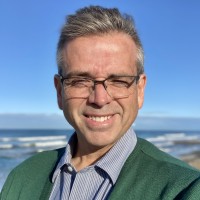Al, in his latest post (Kudos Al!):
Learn by doing. You’re not going to climb a mountain just by reading about Everest.
I think I was 12 years old and my uncle – also called “Joe Crawford” by the way. posed this hypothetical:
Imagine two people on two deserted islands.
To one you give the world’s best book on golf: the book covers absolutely everything human beings know about golf.
To the other you give a set of golf clubs and golf balls.
After a year, who will be the better golfer?
At one time I loved a thought experiment like this. In my thirties they began to annoy me because the contrivance of it is just–dumb. The world has golf courses. Golf books. Golf teams in schools. Golf coaches. And there is a body of knowledge in education. We don’t need to imagine cruelty to strangers and deprivation to think about how to learn.
Be that as it may…
Pre-teen me could see the argument for both sides. Even then I was fond of exploring the strengths of each argument.
School for respiratory therapy taught me that both sides are necessary. Classroom (the book) work must be augmented by Clinical Experience (the putter, driver, and wedge) to cultivate skill.
And all of it proctored by skilled educators and mentors.
And in my web work I of course had books–a giant tome covering HTML 3.2 was a favorite. Plus Usenet and mailing lists. “Listservs” we called them: WebMonster, webdesign-L, Evolt, Web405, WebSanDiego.
And the practicum: Text editors and web browsers. Every machine, even a humble Windows 3.1 machine would have those things. Save that index.htm file and load it up in Microsoft Internet Explorer and see if it worked.
But the hypothetical is missing a huge part of how we learn: other people.
In medicine there’s a phrase: See one. Do one. Teach One. It’s well known enough to have academic papers such as this one written on it:
The traditional method of teaching in Surgery is known as “See One, Do One, Teach One.” However, many have argued that this method is no longer applicable mainly because of concerns for patient safety. The purpose of this paper is to show that the basis of the traditional teaching method is still valid in surgical training if it is combined with various adult learning principles.
Go learn something today.
Onward.

one comment...
Loved this quote from Joe: Imagine two people on two deserted islands. To one you give the world’s best book on golf: the book covers…